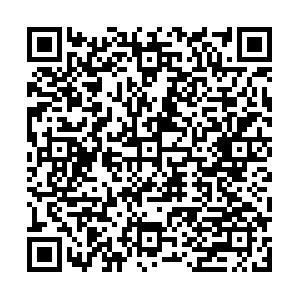|
[1]
|
Abel,Carl.Über den Gegensinn der Urworte(The Antithetical Meaning of Primal Words).Leipzig:Wilhelm Friedrich,1884.
|
|
[2]
|
Blowers,Geoffrey H.“Freud’s China Connection.”Journal of Multilingual and Multicultural Development 4(1993):263-73.
|
|
[3]
|
Bülow,Bernhard von.Fürst Bülows Reden nebst urkundlichen Beiträgen zu seiner Politik.I.Band 1897-1903(Prince Bülow’s Speeches along with Documented Contributions to His Politics.Volume I.1897-1903).Berlin:Georg Reimer,1907.
|
|
[4]
|
Clunas,Craig.Sigmund Freud and His Fascination with China.https://www.youtube.com/watch?v=Fn_pq32m Vo U,[Mar.29,2023].
|
|
[5]
|
Davies,J.Keith,and Gerhard Fichtner,eds.Freuds Bibliothek.Vollständiger Katalog(Freud’s Library.AComplete Catalog).Tübingen:edition diskord,2006.
|
|
[6]
|
Freud,Sigmund.Tagebuch 1929-1939.Kürzeste Chronik(Diary 1929-1939.A Shortest Chronicle).Edited by Michael Molnar.Translated by Christfried Tögel.Basel and Frankfurt a.M.:Stroemfeld,1996.
|
|
[7]
|
——.“Nachschrift 1935 zur‘Selbstdarstellung’”(Postscript to“Self-Portrait,”1935).In Sigmund Freud:Gesammelte Werke XVI(Sigmund Freud:Collected Works XIV).Edited by Anna Freud et al.Frankfurt a.M.:Fischer,1950,31-4.
|
|
[8]
|
——.“Fetischismus”(Fetishism).In Sigmund Freud:Gesammelte Werke XIV(Sigmund Freud:Collected Works XIV).Edited by Anna Freud et al.Frankfurt a.M.:Fischer,1948,311-7.
|
|
[9]
|
——.“Zur Geschichte der psychoanalytischen Bewegung”(The History of the Psychoanalytic Movement).In Sigmund Freud:Gesammelte Werke X(Sigmund Freud:Collected Works X).Edited by Anna Freud et al.Frankfurt a.M.:Fischer,1946,43-113.
|
|
[10]
|
——.“Totem und Tabu”(Totem and Taboo).In Sigmund Freud:Gesammelte Werke IX(Sigmund Freud:Collected Works IX).Edited by Anna Freud et al.Frankfurt a.M.:Fischer,1944,1-194.
|
|
[11]
|
——.“Vorlesungen zur Einführung in die Psychoanalyse”(Introductory Lectures on Psychoanalysis).In Sigmund Freud:Gesammelte Werke XI(Sigmund Freud:Collected Works IX).Edited by Anna Freud et al.Frankfurt a.M.:Fischer,1944,1-480.
|
|
[12]
|
——.“Über den Gegensinn der Urworte”(The Antithetical Meaning of Primal Words).In Sigmund Freud:Gesammelte Werke VIII(Sigmund Freud:Collected Works VIII).Edited by Anna Freud et al.Frankfurt a.M.:Fischer,1943,214-21.
|
|
[13]
|
——.“Eine Kindheitserinnerung des Leonardo da Vinci”(Leonardo da Vinci and a Memory of His Childhood).In Sigmund Freud:Gesammelte Werke VIII(Sigmund Freud:Collected Works VIII).Edited by Anna Freud et al.Frankfurt a.M.:Fischer,1943,127-211.
|
|
[14]
|
——.“Drei Abhandlungen zur Sexualtheorie”(Three Essays on the Theory of Sexuality).In Sigmund Freud:Gesammelte Werke V(Sigmund Freud:Collected Works V).Edited by Anna Freud et al.Frankfurt a.M.:Fischer,1942,27-145.
|
|
[15]
|
——.“Die Traumdeutung”(The Interpretation of Dreams).In Sigmund Freud:Gesammelte Werke II/III(Sigmund Freud:Collected Works II/III).Edited by Anna Freud et al.Frankfurt a.M.:Fischer,1942,1-642.
|
|
[16]
|
Freud,Sigmund,and Arnold Zweig.Briefwechsel(Correspondence).Frankfurt a.M.:Fischer,1968.
|
|
[17]
|
Spector,Jack.“Freud’s‘Fetishism’and the Footbinding of Chinese Women.”In The Reception and Rendition of Freud in China.Edited by JIANG Tao and Philip J.Ivanhoe.London and New York:Routledge,2013,86-102.
|
|
[18]
|
ZHANG Jingyuan.Psychoanalysis in China.Literary Transformations 1919-1949.New York:Cornell UP,1992.
|
|
[19]
|
陈琦:《弗洛伊德与赛先生:民国时期精神分析理论的译介(1912-1937)》,香港中文大学博士论文,2020年。[CHEN Qi.Fuluoyide yu saixiansheng:minguo shiqi jingshen fenxi lilun de yijie(1912-1937)(Sigmund Freud and Mr.Science:Translation of Freudian Theory in Republican China(1912-1937)).Ph D diss.,The Chinese University of Hongkong,2020.]
|
|
[20]
|
(美)爱德华·W·萨义德:《东方学》,王宇根译,北京:三联书店,2019年。[Said,Edward W.Dongfang xue(Orientalism).Translated by WANG Yugen.Beijing:SDX Joint Publishing Company,2019.]
|
|
[21]
|
孙立新:《近代来华德国人已刊纪实报道选介》,《国际汉学》2015年第3期,第157-70+205页。[SUN Lixin.“Jindai laihua deguoren yikan jishi baodao xuanjie”(An Introduction to the Published German Documentary Reports on China in Modern Times).Guoji hanxue(International Sinology) 3(2015):157-70+205.]
|
|
[22]
|
章士钊译:《茀罗乙德叙传》,上海:商务印书馆,1930年。[ZHANG Shizhao,trans.Fuluoyide xuzhuan(Autobiographie of Sigmund Freud).Shanghai:The Commercial Press,1930.]
|

 点击查看大图
点击查看大图



 下载:
下载:

